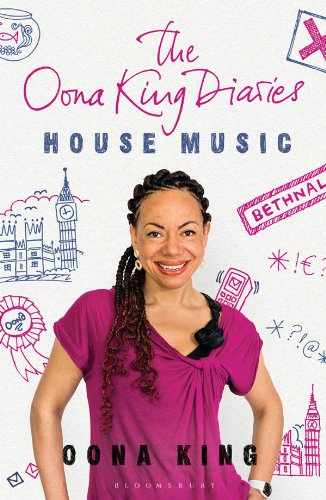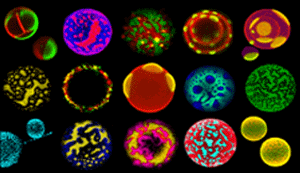Written by Roz Lewis, published in The Guardian
Oona talks about her parents, growing up as the only mixed-race child in her class, and being an adoptive parent
I was born in Sheffield. My father, Preston King, is African American; my mother, Hazel, is a Jewish Geordie. I have a brother, Slater, who is two years younger than me. Slater and I hated each other and we fought like cats and dogs when we were smaller. Now I love him to bits.
My parents' relationship quickly broke down, and my brother and I were subject to a custody battle when I was about four. My father kidnapped us and took us to Africa. My mum tracked us down in Nairobi, somehow got the money together to fight the court case, and we moved back to London. I think both our parents loved us so much, they would do anything for us.
As a single mother, my mum, who was a special needs teacher in London, often found it a struggle. She is an incredibly positive, selfless person, and I get my political awareness and desire for social change from her. Even now people will write to me, saying my mum changed their lives. She loved me limitlessly. I was a very happy child.
My dad was exiled from his home country for 40 years on trumped-up racist charges before receiving a presidential pardon. After leaving my mother, he eventually moved to Australia and married a Lebanese woman. I grew up in Camden. Back then, I was an oddity. A mixed-race child wasn't common. I was the only one in my primary school class – there was one black child, one Asian child and me. The rest were white. Sometimes I got called a mongrel. I had no role models. I remember seeing Sade and Neneh Cherry on TV with relief, as they were the first women I'd seen like me.
My Jewish heritage is important. My mother, as a Jewish kid, had children stone her in the street and say she was responsible for the death of their Lord. Choosing to marry a black man was brave in those days – her family were won over by his educated status. Although I don't believe in God, religion is something I want my children to know about.
My mother was given diethylstilbestrol (DES), later called the "silent thalidomide", when she was pregnant. I had to be checked twice yearly from the age of seven to see if I was developing cancer. Finally, when I was in my early 20s, the doctors said I was in the lucky 10% who don't get sick from the drugs. Whether that's true or not, I don't know.
I married my husband, Tiberio, when I was 26. We delayed having a family for a few years after I became an MP at 29. When we tried, I did get pregnant, but then miscarried. Next was six rounds of IVF. They all failed. No doctor said it was due to the DES, but the result was the same. I was infertile.
Adopting has saved my life. When you have been throughthe exquisite torture that is IVF and infertility, when your children arrive, it is beyond magical. We now have three amazing kids, Elia, seven, Kaia, five, and Ariel, 18 months. Being an adoptive parent means your family is linked to many other families. My children have siblings and half-siblings, so we are in touch with them, and their foster families.
Does love conquer a cultural divide? I hope so. I married an Italian. Being with my husband for 20 years is the most important achievement of my life, as I understand that everything flows from it. You have to sacrifice so much to keep a relationship on the road. My husband certainly sacrificed a great deal when I was an MP.
Family is about support. It is the basis for going out in the world. It's where you start from. It's about a thousand kindnesses every day. I want my children to be kind to each other. That is really hard when they are trying to kill each other ... but I want them to know they have a big and strong family they can rely on.
• House Music: The Oona King Diaries, published by Bloomsbury, is now available as an ebook

